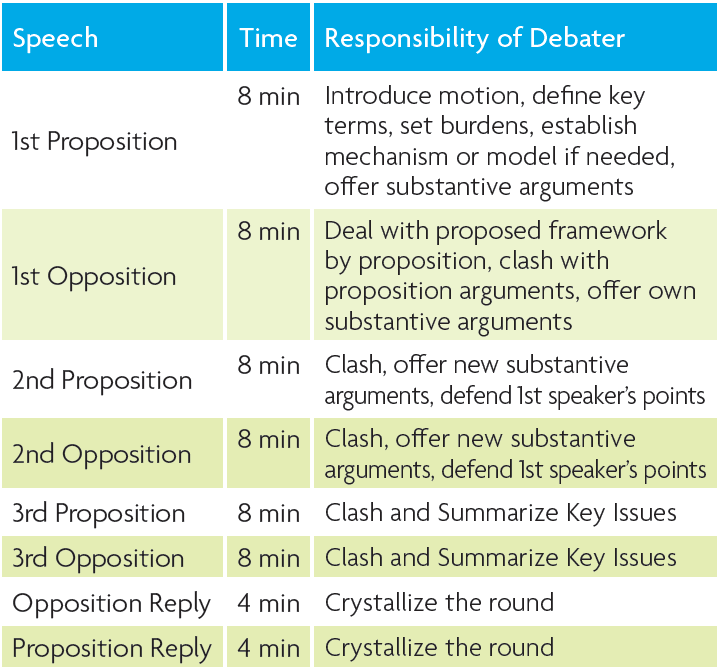Oneness Vs Trinity Debate: Get The Main Difference
Welcome to the exciting debate of oneness versus Trinity! Are you ready to explore the intriguing question of how God exists?
Now, you might be wondering, what exactly is this debate all about? Well, it revolves around the nature of God and whether He is one entity or exists as a Trinity of Father, Son, and Holy Spirit.
But why is this discussion so significant? It touches upon the core beliefs of different religious groups, from Christians to Unitarians, and has been the subject of intense theological discourse throughout history.
So, get ready to delve into the depths of this thought-provoking debate and gain a deeper understanding of the diverse perspectives on the nature of God. Let’s explore the oneness versus Trinity argument in a fun and engaging way!

Key Takeaways: Oneness vs Trinity Debate
- The oneness vs Trinity debate centers around different beliefs about the nature of God.
- Oneness believers argue that God is one and does not exist as three distinct persons.
- Trinity believers hold that God is three persons in one: the Father, the Son (Jesus), and the Holy Spirit.
- The debate involves discussions on biblical interpretations, historical theology, and philosophical arguments.
- Understanding both perspectives can help foster respectful dialogue and a deeper appreciation for theological diversity.
Comparing the Oneness vs Trinity Debate
Introduction:
The Oneness vs Trinity debate is a topic of discussion among theologians and scholars. It revolves around the understanding of the nature of God and the relationship between the Father, Son, and Holy Spirit. In this article, we will explore the key aspects of the Oneness and Trinity beliefs, compare their features, user experience, pros and cons, and ultimately dive into the question of which is better. Let’s delve into this intriguing theological debate and unravel the mysteries surrounding these two perspectives.
Overview of Oneness Belief
Oneness is a theological belief that emphasizes the unity of God. It posits that there is a single divine being who manifests Himself in different ways, rather than three distinct persons within the Godhead. According to the Oneness perspective, the Father, Son, and Holy Spirit are not separate entities but different manifestations or modes of God’s expression. This belief highlights the oneness and unity of God.
Overview of Trinity Belief
The Trinity is a central doctrine in Christianity that posits the existence of three distinct persons within the Godhead: the Father, the Son (Jesus Christ), and the Holy Spirit. Each person is fully God, yet they are not three separate Gods but are co-eternal and co-equal. The Trinity belief acknowledges the unity of God while recognizing the distinctiveness of the three persons within the Godhead.
Key Features Compared
Key Feature 1: Nature of God
Oneness Perspective
In the Oneness belief, God is viewed as a singular being who manifests Himself in different ways. The Father, Son, and Holy Spirit are seen as different modes of manifestation, rather than distinct persons within the Godhead. This perspective emphasizes the oneness and unity of God.
Trinity Perspective
The Trinity belief views God as a triune being, consisting of three distinct persons: the Father, Son, and Holy Spirit. Each person is fully God, yet together they form the one Godhead. The Trinity perspective recognizes the distinctiveness of the three persons while affirming their unity.
Key Feature 2: Relationship Between the Father, Son, and Holy Spirit
Oneness Perspective
In the Oneness belief, the Father, Son, and Holy Spirit are seen as different roles or modes of manifestation of the one God. They are not viewed as distinct persons with distinct relationships but as different expressions of the same divine being.
Trinity Perspective
The Trinity belief highlights the relationship between the Father, Son, and Holy Spirit as distinct persons within the Godhead. The Father is not the Son or the Holy Spirit, the Son is not the Father or the Holy Spirit, and the Holy Spirit is not the Father or the Son. They are separate persons who exist in perfect unity and relationship with one another.
Key Feature 3: Salvation and Redemption
Oneness Perspective
From the Oneness perspective, salvation and redemption are understood as being achieved through a relationship with Jesus Christ, who is seen as the manifestation of God. Believers are baptized in the name of Jesus and receive forgiveness and redemption through faith in Him.
Trinity Perspective
In the Trinity belief, salvation and redemption are accomplished through the work of the Father, Son, and Holy Spirit. Jesus, the Son, is seen as the mediator between God and humanity. Through faith in Jesus and His sacrificial death, believers receive forgiveness and salvation.
User Experience:
The user experience of the Oneness and Trinity beliefs can vary depending on an individual’s personal convictions and theological background. Both perspectives offer a deep and meaningful understanding of the nature of God. Individuals who adhere to the Oneness belief may find comfort in the emphasis on the unity and oneness of God. On the other hand, those who hold to the Trinity belief may find a sense of wonder and reverence in the mystery of the three persons within the Godhead. Ultimately, the user experience is subjective and deeply personal.
Pros and Cons
Oneness Belief:
Pros:
– Emphasizes the unity and oneness of God.
– Offers a clear understanding of the relationship between God and humanity.
– Presents a straightforward approach to the nature of God.
Cons:
– May be perceived as denying the distinctiveness of the Father, Son, and Holy Spirit.
– Raises questions about the nature of God and the relationship among the three manifestations.
– Interpretation can vary among different Oneness groups.
Trinity Belief:
Pros:
– Emphasizes the distinctiveness and unity of the three persons within the Godhead.
– Provides a framework for understanding the relationship between God, Jesus Christ, and the Holy Spirit.
– Recognized as a foundational belief in mainstream Christianity.
Cons:
– Can be challenging to comprehend and explain due to the mystery surrounding the Trinity.
– May be perceived as promoting the existence of three Gods.
– Differences in understanding and interpretation among various Trinitarian perspectives.
Price Comparison:
The Oneness vs Trinity debate is a theological discussion and does not involve specific products or services with price points. Therefore, a price comparison is not applicable in this context.
Comparison Table:
Which is Better – Oneness vs Trinity Debate
Deciding which belief is better, whether the Oneness perspective or the Trinity belief, is a highly subjective matter that largely depends on an individual’s theological views, personal experiences, and understanding of scripture. Both beliefs offer a deep appreciation of the nature of God and hold significance within their respective theological frameworks.
However, it is essential to recognize that the Oneness vs Trinity debate has been a topic of discussion and disagreement among scholars and theologians for centuries. Ultimately, the decision of which belief is better lies in an individual’s personal convictions and relationship with God.
Here are three reasons why individuals might choose either the Oneness perspective or the Trinity belief:
For Oneness:
1. Emphasis on the unity and oneness of God resonates with their personal faith.
2. Clarity and simplicity in understanding the nature of God align with their theological convictions.
3. Focus on the name of Jesus and baptism in His name holds significant spiritual meaning for them.
For Trinity:
1. Recognition of the distinctiveness and unity of the Father, Son, and Holy Spirit appeals to their understanding of scripture.
2. Appreciation for the mystery and wonder surrounding the Trinity deepens their reverence for God.
3. Connection to the historic and widely accepted belief within mainstream Christianity provides a sense of continuity and unity with other believers.
Ultimately, the question of which is better – the Oneness perspective or the Trinity belief – is a deeply personal and subjective decision that rests with each individual’s understanding and relationship with God.
Frequently Asked Questions
Welcome to our Frequently Asked Questions section on the oneness vs Trinity debate. Here, we will address some common queries regarding these theological concepts and explore their similarities and differences. Whether you’re new to the subject or seeking a deeper understanding, we’re here to help!
1. What is the oneness doctrine?
The oneness doctrine, also known as Oneness Pentecostalism, believes in the idea of the “oneness” of God. According to this belief, there is a single divine being who expresses Himself in three different modes: as the Father in creation, as the Son in redemption, and as the Holy Spirit in empowerment. Oneness believers reject the concept of the Trinity and emphasize the unity of God.
While the oneness doctrine may differ from the traditional understanding of the Trinity, it is important to note that both beliefs aim to explain the nature of God and His relationship with humanity. The oneness doctrine places emphasis on the oneness of God, while the Trinity doctrine emphasizes the three persons within the Godhead.
2. What is the Trinity doctrine?
The Trinity doctrine is the belief held by many Christian denominations that God is one being who exists eternally as three distinct persons: the Father, the Son (Jesus Christ), and the Holy Spirit. These persons are said to be co-equal, co-eternal, and each fully God in essence. The Trinity is often described as a mystery, as it goes beyond human comprehension and is a matter of faith.
It is important to note that the Trinity does not imply belief in three separate gods, but rather the belief in one God who manifests Himself in three persons. This belief emerged in the early centuries of Christianity as theologians sought to understand the nature of God, based on the teachings of Jesus and the apostles.
3. How do the oneness doctrine and the Trinity doctrine differ?
The main difference between the oneness doctrine and the Trinity doctrine lies in their understanding of the nature of God. The oneness doctrine emphasizes the unity and oneness of God, considering the Father, Son, and Holy Spirit to be different modes or roles that God assumes at different times. On the other hand, the Trinity doctrine asserts that God exists eternally as three distinct persons within one divine being.
While the oneness doctrine rejects the idea of three persons within the Godhead, the Trinity doctrine affirms the coexistence of the Father, Son, and Holy Spirit. These theological differences have led to debates and discussions within the Christian community, as both perspectives seek to provide answers to the complex nature of the divine.
4. How do oneness believers support their doctrine?
Oneness believers primarily support their doctrine by pointing to verses in the Bible that emphasize the oneness or unity of God. They argue that the concept of the Trinity is not explicitly mentioned in the Scriptures and that there are passages that highlight the singular nature of God. Oneness believers also emphasize the importance of Jesus’ role as the one true God, as they interpret various verses that validate their belief.
It is essential to note that while oneness believers derive their doctrine from their interpretation of the Bible, there are varying interpretations of these same verses within the wider Christian community. The oneness vs Trinity debate continues to be an ongoing theological discussion among believers.
5. Can oneness believers and Trinitarians coexist within Christianity?
Yes, oneness believers and Trinitarians can coexist within Christianity. While there are significant theological differences between the two perspectives, it is important to remember that unity in faith and love for Christ should unite all Christians. Recognizing and respecting these differences allows for fruitful discussions and a deeper understanding of the diverse ways in which individuals interpret and relate to God.
It is essential to approach these discussions with respect, open-mindedness, and a commitment to seeking common ground. Ultimately, unity in essential beliefs and a shared conviction in the person and work of Jesus Christ hold the potential for building bridges between different theological perspectives within Christianity.

Oneness Vs Trinity Debate David Bernard and Gene Cook
Summary
So, let’s recap what we’ve learned about the oneness vs Trinity debate. We talked about how some people believe in the oneness of God, which means they think God exists as one person. Others believe in the Trinity, which says that God exists as three persons: God the Father, God the Son (Jesus), and God the Holy Spirit.
We explored the key arguments for each side. Those who support the oneness doctrine say that God is always referred to as one in the Bible, and they believe that Jesus and the Holy Spirit are just different manifestations of God. On the other hand, those who believe in the Trinity believe that the Father, Son, and Holy Spirit are distinct persons, yet they are all fully God, each with their own roles.
It’s important to remember that the oneness vs Trinity debate is a complicated topic, and there is no definitive answer. Both sides have made strong arguments based on their interpretation of the Bible. Ultimately, it’s up to each person to come to their own understanding and belief.
The most significant thing to take away from this debate is that people can have different viewpoints and still respect and learn from one another. We should always be open-minded and willing to listen to different perspectives. The oneness vs Trinity debate teaches us the value of tolerance and the importance of mutual understanding in our diverse world.




